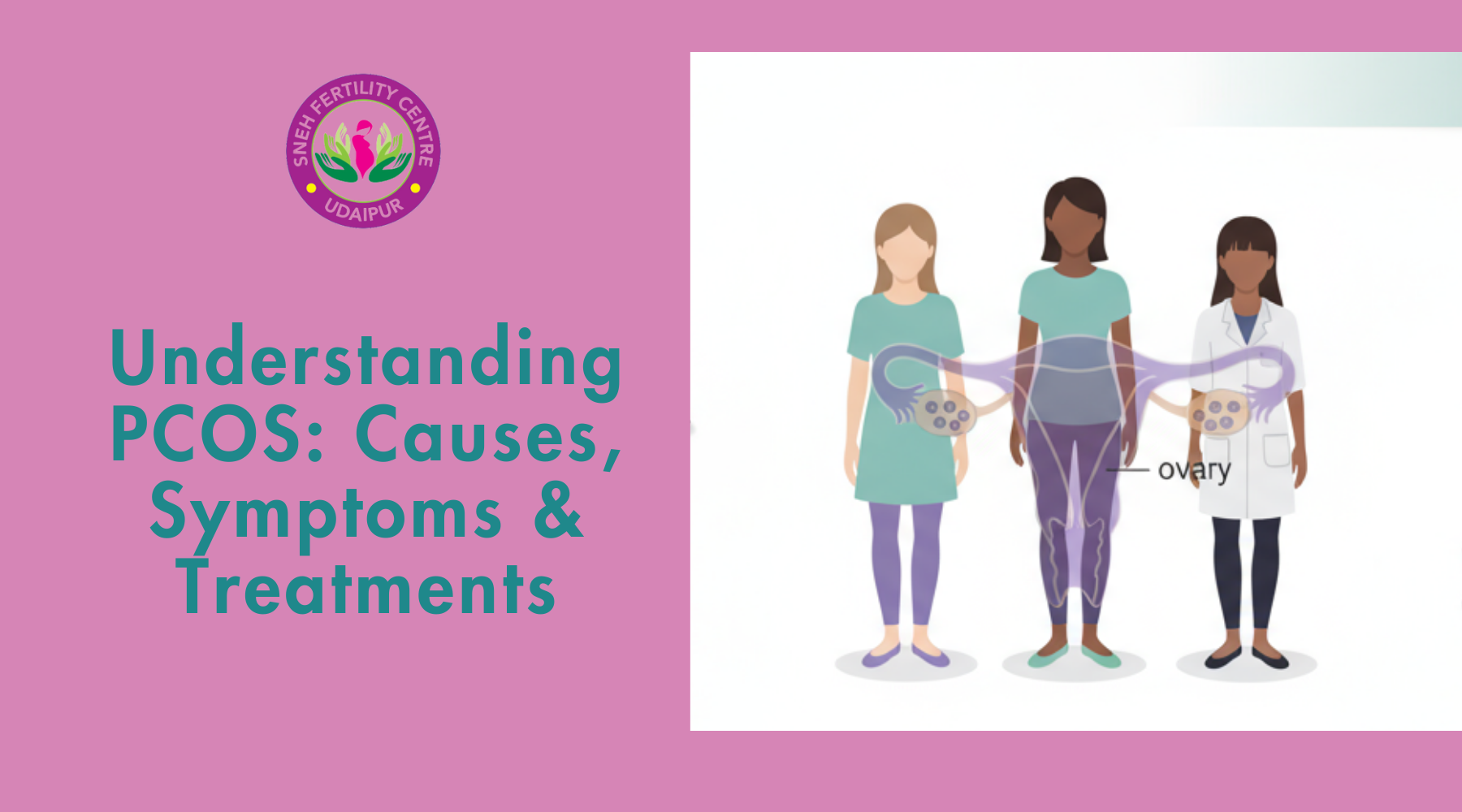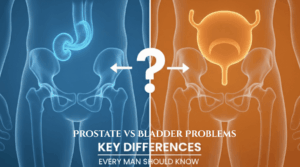Polycystic Ovary Syndrome (PCOS), also called PCOD, is one of the most common health concerns affecting women today. Many women notice irregular periods, sudden weight gain, or skin issues without realizing these could be signs of PCOD. Learning about this condition is the first step toward better health and effective management.
In this article, we’ll explain what PCOS/PCOD is, its causes, symptoms, risks, and treatment options available.
What is PCOS/PCOD?
PCOS, or Polycystic Ovary Syndrome, is a hormonal disorder where the ovaries produce higher than normal levels of male hormones (androgens). This imbalance affects the process of ovulation, which is the release of eggs during the menstrual cycle.
Women with PCOS or PCOD may face:
- Irregular periods
- Difficulty conceiving
- Skin and hair problems
- Weight related issues
Causes of PCOS/PCOD
While the exact cause is not fully understood, several factors can contribute:
- Family history: If your mother or sister has PCOD, your chances are higher.
- Insulin resistance: Many women with PCOD have high insulin levels, increasing the risk of diabetes.
- Lifestyle factors: Poor diet, lack of exercise, and being overweight can worsen PCOD symptoms.
- Hormonal imbalances: Increased androgens and LH can disrupt ovulation.
Common Symptoms
Symptoms can vary from woman to woman, but the most common include:
- Irregular or missed periods
- Difficulty getting pregnant
- Unwanted facial or body hair (hirsutism)
- Hair thinning or hair loss on the scalp
- Acne or oily skin
- Weight gain, especially around the abdomen
Health Risks Linked with PCOS/PCOD
If left untreated, PCOS or PCOD may increase the risk of developing:
- Type 2 diabetes
- High blood pressure
- Heart disease
- Sleep apnea
- Uterine (endometrial) cancer
Diagnosis
Doctors usually diagnose PCOS or PCOD through:
- Medical history and physical examination
- Blood tests (hormone levels, insulin resistance)
- Ultrasound (to check for ovarian cysts)
Treatment Options
Lifestyle Changes
- Eat a healthy diet with whole grains, vegetables, and fruits
- Avoid sugary drinks and junk food
- Exercise regularly
- Reduce stress with yoga or meditation
Medical Treatments
Depending on symptoms, doctors may recommend:
- Birth control pills – regulate periods and reduce unwanted hair growth
- Fertility medicines – for women trying to get pregnant
- Insulin-controlling drugs – manage blood sugar
- Medicines or creams – treat acne or hair issues
When to See a Specialist
Women experiencing irregular periods, sudden weight gain, or unwanted hair growth should consult doctors for PCOD treatment in Udaipur. Early diagnosis prevents long-term complications and improves overall health.
Frequently Asked Questions (FAQ's)
Can PCOD be cured?
No, but symptoms can be managed with medical care and lifestyle changes.
Can women with PCOD get pregnant naturally?
Yes, but some may require fertility support.
Does losing weight help PCOD?
Yes. Even 5–10% weight loss can improve hormone balance and ovulation.
PCOS or PCOD affects many women worldwide, but with proper care, symptoms can be managed effectively. Healthy lifestyle changes, medical support, and expert guidance make a big difference.
For personalized care, consult doctors for PCOD treatment in Udaipur at Sneh Fertility Centre and take the first step toward better health.






